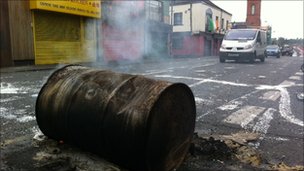OK so this is not strictly a left/right thing but generally lefties love the idea of neo-Keynesian deficit spending to rejuvenate the economy and generally righties prefer the idea of letting things run their course and eventually returning to growth by allowing the free market to unwind imbalances in order to invest resources in the most productive way. But what if there was a set of circumstances where the sum of individual actions was actually working against the re-allocation of resources to productive industries?
I cannot claim to represent anyone apart from myself. However if there are lots of people stuck in the same situation as me then it might explain why the economy is only growing feebly and why this is the worst recovery for a century.
The free-marketeers tell us that people are much better at spending their own money than the state is at spending other people’s money. On the face of it this makes total sense. I can decide which home or phone or electricity or food suits me the best given my requirements and amount I am willing or able to spend. But might there be a situation where implementing my least-worst financial options is actually reducing my lifetime earnings capacity?
A quick back-of-the-envelope estimate reckons that I am putting between 30% and 45% of my net income each month into paying down debt. This is because I am trapped between the mortgage loan-to-value ratio that I borrowed at and the loan-to-value ratio that I think might be available when I need to re-mortgage in a scarily small number of months time. I am converting income into capital as fast as I can without starving in the process.
But if lots of people are doing the same thing then our incomes are not being converted into investment or consumption. And maybe this is why the economy is not exactly booming despite very low rates and a huge public deficit.
Could it be possible that in this situation the government might actually be better at spending my money than I am? For example, what if taxes were raised slightly to pay for much-needed investment in projects that would improve the economy, such as transport and communications infrastructure? As Stephanie Flanders points out in her blog, because infrastructure projects are slow to come on stream this might not give us the boost we need now.
What about if taxes were raised slightly in order to underwrite more mortgage lending? That might actually increase the amount I and people in my position have to spend on goods and services. Unfortunately that wouldn’t be a very clever idea in the longer term because it would just prolong the required rebalancing of the economy.
There do not seem to be any easy answers to this. Unfortunately, from my “ideological” position to the smaller-state side of the political spectrum, it does seem to me that the power to kick-start the economy does lie exclusively in the government’s hands.
Then again, maybe we should not be expecting an artificial boost. Maybe the only possible way forward is several more years of grinding our way through our debts, putting – literally – our houses in order, and not expecting any easy return to the good ol’ days.
In the meantime, while Vince and George work all this out, I shall mostly be consuming cathode rays for entertainment.


